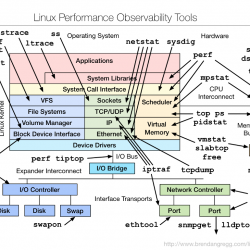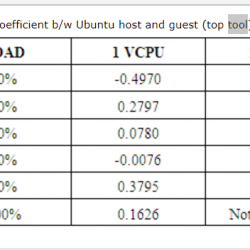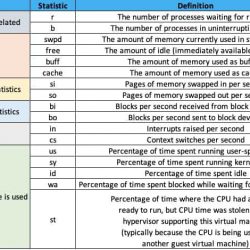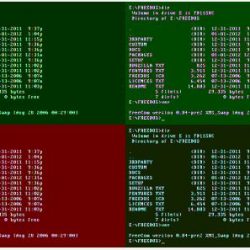
Java Installation Guide in Linux & Windows
DOWNLOAD OPEN JDK & JRE JAVA PACKAGE FROM – https://jdk.java.net/archive/ Download and Install JDK/JRE 7 in Centos & RHEL Download and Install JDK/JRE 8 in Centos & RHEL Download and…
Read more »
Linux Tutorials: Commands for Linux Administrator
1. sudo – Execute commands with elevated privileges, a fundamental for system administration. 2. useradd – Create a new user account, essential for managing user access. 3. usermod – Modify…
Read more »
Linux Tutorials: How to troubleshoot Linux Server?
If a linux-build-server suddenly starts getting slow, I would divide my approach / troubleshooting into 3 section as follows; System Level troubleshooting Application Level troubleshooting Dependent Services troubleshooting Understand Logs Level…
Read more »What is Linux and use cases of Linux?
What is Linux? Linux is an open-source, Unix-like operating system kernel first created by Linus Torvalds in 1991. It serves as the foundation for a wide range of operating systems,…
Read more »Jenkins Tutorial: Install Jenkins on Ubuntu
In this tutorial we are going to install Jenkins on Ubuntu operating system. Ubuntu is another debian based operating system – open sourced and highly loved by developer community. Step…
Read more »
Linux Performance Monitoring Guide
CPU Memory Network Storage Device and Input I/O Storage Capacity Storage Controller CPU Memory and I/O Interconnect Rajesh KumarI’m a DevOps/SRE/DevSecOps/Cloud Expert passionate about sharing knowledge and experiences. I have…
Read more »
Linux Tutorials: mpstat commands examples
mpstat – Report processors related statistics. The mpstat command writes to standard output activities for each available processor, processor 0 being the first one. Global average activities among all processors…
Read more »
Linux Tutorials: vmstat commands examples
The vmstat command (short for virtual memory statistics) is a built-in monitoring utility in Linux. Users can observe system activity virtually in real-time by specifying a sampling period. The command…
Read more »Linux Tutorials: Commands for Linux User
ls – List directory contents. cd – Change the current directory pwd – Print the name of the current working directory. touch – Create an empty file or update the…
Read more »
5 ways to split your Linux terminal multiplexer
List of Most Popular Free Linux Terminal Tmux GNU Screen Konsole Emacs Tilix Terminator MobaXStrem mRemoteNG Shells, terminals, and consoles The short version: A shell is an input and output…
Read more »[SOLVED] Laravel : Supervisor FATAL/BACKOFF Exited too quickly (process log may have details)
Problem I’m trying to use Laravel queues with a supervisor but the service is not working properly. When I try to check status:$ sudo supervisorctl status$ laravel-worker:laravel-worker_00: BACKOFF Exited too…
Read more »Modules in Apache Web Server
Core Modules New functions are in the form of modules. Every module has their own directives Easy to download,install and configure Define modules, use their syntaxes to use that functions…
Read more »Directory Structure of Apache Web Server
Apache HTTPD – Directory Structure CORE/common Directories conf modules htdocs logs New structure in Yum/RPM base installation conf conf.d conf.modules.d modules htdocs logs Structure in Tarball/source code base installation conf…
Read more »Installation Of Apache HTTP Web Server
How many ways you can install Apache? Installation Types1.Yum Based2.RPM Based3.Source code/ Tar ball Based Apache install on Centos 7 (Yum Base) 1.Check OS version # cat /etc/*release 2.Install apache…
Read more »What is LAMP Stack?
What is Stack? The term stack(derived from “solution stack”) refers to a collection of different software programs that “stack” together to create a plateform necesary to support application software. These…
Read more »Best practices to secure your Apache Web Server
Server Version Banner should be removed. I’d say this is one of the first things to think about, because you don’t want to reveal your web server version. By exposing…
Read more »Best Practices of Linux Security
User Security Password Security Securing the root account File System Security System Security User Security Avoid shared accounts Ensure each user is assigned a unique account name and a unique…
Read more »Linux Security Tools
Vulnerability Assessment with Nessus Traffic Security with Ethereal Web Proxying with Squid Vulnerability Assessment with Nessus Nessus is a vulnerability assessment tool Comes built-in with most distros More than just…
Read more »How to Detecting and Stopping Attacks in Linux
System Auditing System Logging Network Intrusion Detection with Snort Host File Integrity with Tripwire System Auditing Auditing can track system activities to warn sysadmin of suspicious activity Allows sysadmin to…
Read more »Complete Referance of Secure Networking in Linux
OpenSSH Samba NIS NFS Securing FTP and HTTP servers OpenSSH Open source version of SSH that normally comes with OpenBSD Comes with several distros or downloadable Linux ports have ‘p’…
Read more »Complete Referance of Linux Security Mechanisms
TCP Wrappers etc/hosts allow and deny inted and xinetd PAMs SELinux Unsecure Linux Utilities TCP Wrappers TCP Wrappers is built into most distros Adds IP filtering capability Enables access logging…
Read more »Complete Referance of Firewalls in Linux Security
Introduction to Firewalls IP Tables Dedicated Linux Firewalls Introduction to Firewalls Firewalls protect network perimeters Not total security solution, but important part of defense in depth strategy Firewalls act as…
Read more »Complete Referance of Hardening in Linux Security
System Hardening Overview Batille Securing X-Windows Securing Linux Daemons Security patches Security Benchmarks System Hardening Overview Linux, like other operatingsystems, is not secure “out of the box” Security increases as…
Read more »Complete Referance of Encryption in Linux Security
Introduction to Encryption Using GNU GPG Using SSH Hashing Utilities Using PKI Certificates in Linux Introduction to Ecryption Linux has built-in ability to encrypt files Protects files in storage Protection…
Read more »Complete Referance of Linux Security
Course Outline Introduction To Linux Security A Bit About Linux Current Security Problems which is more secure: Windows vs Linux? Requirements of a Secure OS Overview of Linux Security Features…
Read more »Ubuntu 20.04.2 LTS display “34 updates can be installed immediately.”
Try Below Commands to update packages A reboot may or may not be necessary (sudo shutdown -r 0) For my machine i use only below command Note : if you…
Read more »Ubuntu 20.04.2 LTS displays “There is 1 zombie process” upon login
To Check the zombie process run below command and Then kill the parent process 👉 For more details read below tutorial on this topic: Click Here Chandan KumarMotoShare.in provides the…
Read more »XAMPP: Another web server is already running
Step 1: Stop the Apache Step 2: and Then Restart Apache 👉 if above command will not work in your machine then do below steps: Step 1 : check the…
Read more »
NPM Error: Node Sass does not yet support your current environment
Deepak KumarMotoShare.in is your go-to platform for adventure and exploration. Rent premium bikes for epic journeys or simple scooters for your daily errands—all with the MotoShare.in advantage of affordability and…
Read more »